Austin is open for business.
Forbes, Entrepreneur and CNBC consistently list Austin as a top 10 city to start a business, and Inc.’s 2019 report ranked Austin as the top spot ahead of 49 other metro areas. Job opportunities, cost of living, and an increasing mix of creatives and entrepreneurial-minded professionals have attracted people in droves to the “heart of Texas” — and with them, plenty of new ventures.
The following 50 startups represent local tech companies fewer than three years old that are poised for a promising future. Our list includes a blend of first-time founders and serial entrepreneurs looking to make impacts in public safety, data privacy, blockchain and more.
Top Startups in Austin
- Athena Security
- Bungalo
- DocStation
- Wheel
- GradJoy
- Joust
- Ontic Technologies
- Osano
- Reset
- Transmute

Three-year-old security startup Ontic Technologies kicked off 2019 with a cool $4.6 million seed round to expand its protective intelligence solution. The platform pulls data from multiple sources and streams it into a real-time feed that helps security professionals analyze and assess external threats to protect executives, workplaces and schools. Co-Founder Lukas Quanstrom leads as CEO.

Builders face a catch-22: If construction companies don’t have the funds to purchase materials for an upcoming project because they’re waiting to get paid from an existing one, they often have to turn down bigger upcoming projects. Billd launched in 2018 to make sure that doesn’t happen by providing a financing and payment platform for construction companies. Construction veteran Chris Doyle founded the company, which raised $60 million at the start of 2019.
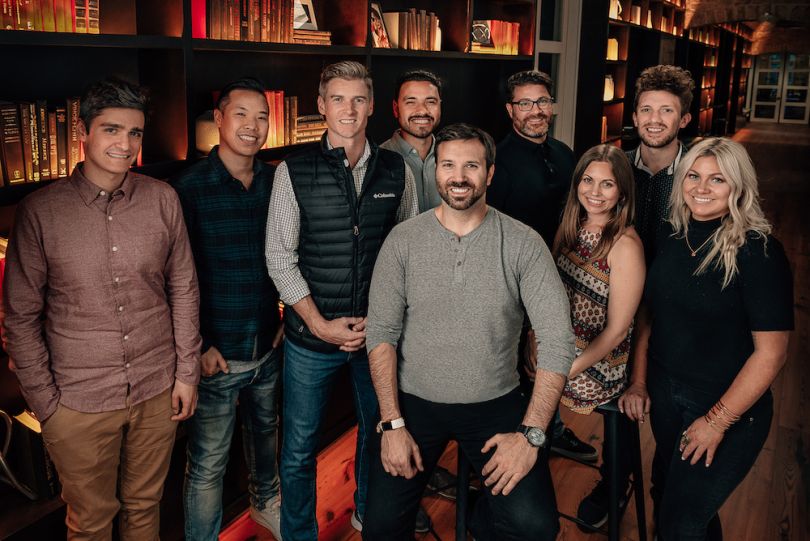
One of the leading reasons people don’t invest is a lack of understanding — but it doesn’t have to be a mystery. Co-Founders Irving Lee, Eric Albee and Raymond Kaminski launched ibble at SXSW in 2019, offering a learning trading platform that teaches the art of investing without the use of real money. Through curated news, interactive livestreams and weekly trading competitions with cash prizes, Lee, Albee and Kaminski hope to make the industry more accessible to outsiders.

Wouldn’t it be nice to make an all-cash offer on a new home before selling the existing house? Serial tech entrepreneur Tim Heyl is trying to make that option available to the masses through his new venture, Homeward. Through the platform, approved users receive credit upfront for their current home so that they can make a cash offer on their next one. Homeward launched in 2018 and raised $25 million last July to scale out its platform and improve the mobile customer experience.

The prevalence of virtual teams is at an all-time high — and with good reason. The structure allows companies to recruit the right talent regardless of location while empowering employees with flexibility. Plus, new technologies make it easier for workers to collaborate no matter their home base. Immersed, a graduate of Chicago Techstars 2017, develops VR workspaces in conjunction with Oculus VR headsets. Through remote, immersive rooms, people can co-work in a virtual coffee shop, meet with up to seven colleagues in digital conference rooms, host a collaborative and remote whiteboarding session, and more. According to the company, Immersed is in the process of closing on a larger seed round.

What began as an internal solution at Austin-based Umbel to process data faster and with less servers is now its own company. Led by CEO H.O. Maycotte, Molecula’s data virtualization platform processes data a thousand times faster than traditional models. In August, the company raised $6 million to increase its go-to-mark efforts and add more customers to its existing base of about 2,000 organizations.

With limited resources and staff, small business owners are often forced to take on a jack-of-all-trades role that covers marketing, operations and even financing. Serial entrepreneur and financial expert Brandon Metcalf is stepping in to make the latter less of a headache. His new platform, Place Technology, offers financial forecasting, budgeting, modeling and more with different collaboration, reporting and visualization tools through a native app in Salesforce. Place raised $3 million in October to prepare for its official launch. Today the solution is live and available.

Shopping isn’t the only industry going digital — telemedicine is on the rise, too. San Francisco VC firm CRV led a $13.9 million seed investment at the beginning of 2020 for Wheel, which offers a tech-enabled marketplace that helps healthcare companies scale rapidly and compliantly while improving the experience and opportunities for clinicians. Patients benefit from accessible digital healthcare, and clinicians can make some extra money by picking up “digital hours.” CEO Michelle Davey and Chief Strategy Officer Griffin Mulcahey co-founded Wheel in 2018.

For clients like NASA, the U.S. Missile Defense Agency and the U.S. Navy, CesiumAstro creates out-of-the-box satellite communication systems and full spacecraft payloads that the company says are more cost-efficient than other phased array systems on the market. CEO Shey Sabripour, a former spacecraft design engineer at Lockheed Martin, founded the company in 2017. Since then, the company has raised more than $14 million in funding and plans to test its phased array antenna systems in orbit within the next year.

Sana Benefits is joining startups like Oscar Health and Bright Health in making health insurance less confusing. But unlike other companies that support individual insurance plans, Sana Benefits targets employers with quality plans for their staff that cost about 30 percent less than traditional benefits. In October, Sana raised a $6.3 million seed round to grow its local and remote team and gain more market traction.
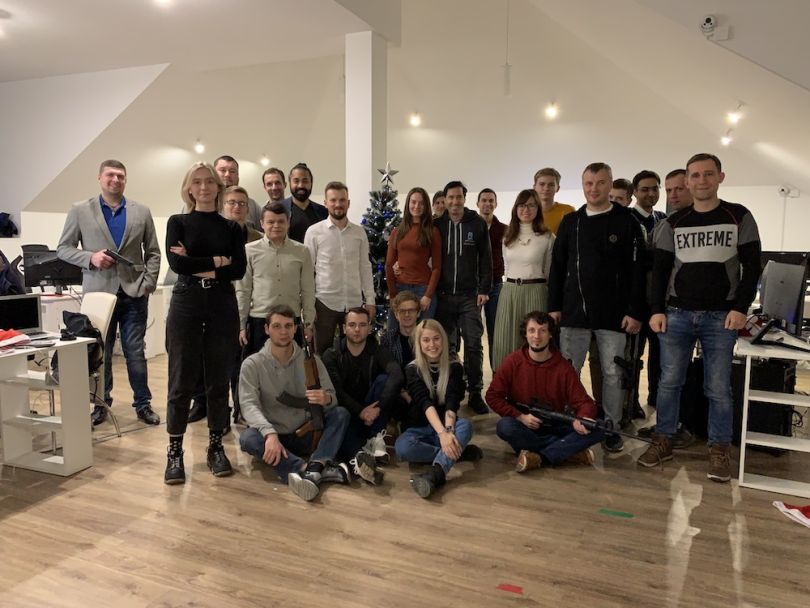
Using AI technology, Athena Security’s video solutions can detect 900 types of firearms and recognize threats in less than three seconds. When a gun, knife or aggressive action is detected, the system alerts those involved in a potential situation to act swiftly and automatically calls first responders. Serial tech entrepreneurs and former co-founding team Lisa Falzone and Chris Ciabarra teamed up again on this venture and raised $5.5 million over the summer to continue expanding throughout schools, churches and enterprises.
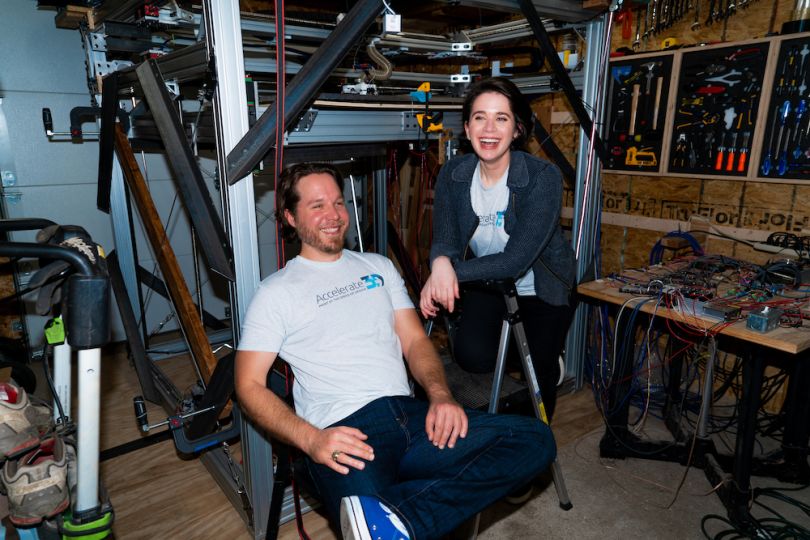
Using a patent-pending machine design, Accelerate3D hopes to bring speed and high-quality materials to the world of 3D printing for industrial design firms, electric aircraft startups and more. Just how much speed? Co-Founder and CEO Riley Knox said Accelerate3D’s prototype printer can print at a rate four times faster than market standards, with plans to speed production up to 10 times faster in later iterations. The startup graduated this fall from the 2019 Stanley+Techstars Additive Manufacturing Accelerator.

A 2018 report from Zillow found that 46 percent of buyers are purchasing their first home, and 17 percent of homeowners make three or more offers on a house before finalizing a deal. Bungalo wants to reduce all the stress that comes with the process. Using the Bungalo app, interested buyers can take self-guided tours through homes, receive same-day, pre-approved mortgages, submit paperless offers and close on a home guided by Bungalo’s digital checklist. Bungalo is backed by Austin-based parent company Amherst Residential, which contributed to a whopping $250 million funding in 2018.

In addition to a $1.75 million funding round from investors that included Reddit Co-Founder Steve Huffman and TikTok Chief Business Officer Blake Chandlee, game studio Cerberus Interactive crowdsourced $50,000 from gamers who wanted beta access to the game, “Atlas Empires.” With 70,000 downloads to date and about 1,000 active daily users, “Atlas Empires,” a location-based building game, is set to launch commercially in early 2020.

The continued rise of e-commerce has forced brick-and-mortar retail stores to find new ways to engage with shoppers. Enter Crave Retail, the startup behind an app that allows shoppers to reserve clothes at a store, book a fitting room stocked with their selected items, request sizes in real-time from the room, and check out directly from the app when ready to purchase. Matthew Cyr, who has worked in retail operations across North America, China, Japan, Singapore and Malaysia, leads as CEO.

When was the last time anyone enjoyed a trip to the pharmacy? A graduate of the Techstars Austin 2018 Accelerator program, DocStation supports pharmacists (and patients) with a HIPAA-compliant platform that offers communication with patients, reporting, case and clinical management and more. According to the creators of DocStation, the team is focused on more than just getting data into the platform — they want to improve the patient experience.

Blockchain technology has been used to address voter fraud, trade commodities like soybeans and oil, and sell virtual cats. Now, Austin-based Eggschain is developing a fertility-based blockchain community so that users can track their frozen eggs, embryos and sperm over an app throughout the freezing procedure. CEO Wei Escala founded Eggschain in 2018.
ERC dEX is jumping on the growing adoption of the token economy by becoming a legally compliant exchange host for tokenized securities trading. ERC dEX hit the scene in 2017 with a live, decentralized trading platform to exchange Etherium tokens, but after the SEC issued new regulations surrounding the issuances of digital asset securities and trading, the company pivoted to become a fully licensed and registered exchange host. According to SEC filings, ERC dEX has raised $700,000 to date.

Leslie Omana Begert and Mark Begert co-founded digital language learning platform FabuLingua in 2017 to help children learn a second language. Designed for children between 2 and 10 years old, FabuLingua guides readers through interactive stories that help develop new language skills by displaying Spanish text while rhythmically narrating between Spanish and English translations. The company launched on the App Store and Google Play in December 2019.

Food and beverage producers throughout North America got a helping hand in sourcing new ingredients thanks to Austin-based Fieldcraft. Its online marketplace is home to thousands of crops, powders and spices that can be easily shared, sourced and ordered between growers and suppliers. CEO and Co-Founder Michael Chapman, a retired CIA special operations officer who also served in the White House Situation Room, was recently selected for a Veterans in Residence program via Bunker Labs.

Vicci Kwan and Leah Mayo teamed up to found travel venture FOUND Experience, which helps those struck by wanderlust to create personalized experiences. Its digital travel guide sources activities, restaurants, bars and entertainment based on user preferences. The company is a member of Austin’s DivInc 2019 accelerator program.

Leveraging AI technologies that collect and analyze behavioral and demographical data, Gleantap says it’s able to boost the number of new and returning members to fitness and wellness studios. The platform, which launched in 2018, is already being used by Gold’s Gym, Planet Fitness and Orangetheory Fitness, among others. It’s also raised more than $255,000 via crowdsourcing from more than 1,100 investors. Sagar Babber, previous founder of Snyxius Technologies and co-founder of Collaborate Cloud, leads Gleantap as CEO and founder.

Many surgeries are complicated, and recovery can be just as challenging, especially with the high risk of opioid addiction. Goldfinch Health launched in 2018 with an app that offers personalized and professional care to guide patients through the entire process. Its goal is to help create a road to recovery that does not rely on opioids and to get patients back to their normal lives faster.

Golf Scope is a new app that uses iPhone cameras to help golfers determine where to aim each putt on the golf course. The augmented technology shows slope, elevation and distance to the hole, and tracks putting history so golfers can see if they’re improving. CEO Ryan Engle, former CTO of Wikibuy and founder of Rengler Studios, launched Golf Scope in 2018. The company also owns Pro Putt, a VR app for the Oculus Quest headset, which recently secured a partnership with Topgolf.

Student loans don’t only affect graduates working to pay them off. With Americans hanging onto a collective $1.6 trillion in student debt, loans hurt the economy by delaying individuals from starting families, buying homes and launching small businesses. Jose Bethancourt hopes to change that by eliminating debt more quickly. He founded GradJoy in 2018 to provide graduates with personalized plans from financial experts designed to help pay debt off faster. The startup raised a $150,000 seed round from Y Combinator last summer.

According to Groove.id, more than 30 percent of software licenses at a company go unused due to factors like new employees, employees leaving the company and cross-department promotions. Groove.id aims to knock that percentage to zero by automating license management and the assignment of SaaS accounts. The three-year-old cybersecurity startup also eliminates unused passwords.

Last year, April and Nikki Dominguez launched an online professional network for individuals who work in the beauty industry called Handsome, formerly known as Tradiies. More than 7,800 beauty professionals currently use the app to share their portfolios, product knowledge, education and styles, as well as find jobs, network and discover industry-related education opportunities. The company has raised close to $500,000 to date in an effort to make what can be a cutthroat industry a little more focused on community.
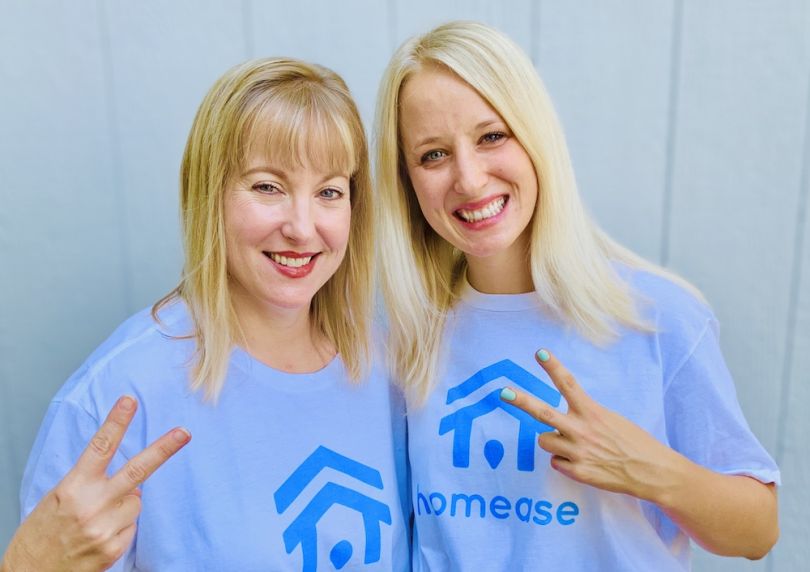
Part of being a good broker is knowing people in town who can tackle home services like inspections, plumbing, auditing and more, for both buyers and sellers. Sarah Biggerstaff, a native Austinite and local real estate agent, founded Homease in 2018 to offer an online community that connects agents with vetted and reputable home service professionals in their areas.

Blockchain isn’t just for crypto-fanatics. Turns out, businesses can benefit from the distributed ledger technology as well, especially when it comes to payment systems and record keeping. Launched in April 2019, Horizen Labs partners with businesses looking to build blockchain-based solutions and offers a deployment tool found on its secured public infrastructure. Chief Strategy Officer Liat Aronson, CEO Robert Viglione and COO Dean Steinbeck co-founded the startup, which has raised $5 million in seed funding.

The world of freelancing is not for everyone. Landing assignments and then chasing paychecks from said assignments can get messy. The fintech startup Joust, which relocated its HQ to Austin from Denver with a $2.6 million seed round in tow, hopes to clean up the process for freelancers everywhere. The company provides digital banking services like same-day funding for invoices and a fully integrated merchant account for self-employed workers. Users can expect bookkeeping, tax management, and contract management solutions in the coming months.

It’s common to struggle to find a sensible gift for a friend or family member in grieving, and that’s where KikuPal comes in. The startup, founded by Naomi Bourgeois in 2017, offers a gifting platform to send services like house cleaning, lawn maintenance and meals to those experiencing illness or grief. KikuPal graduated from DivInc’s Fall 2019 cohort.

Being sick can be exhausting and keeping track of medication is a chore. KnowRX’s medication management app helps patients remember when to take their prescriptions through a scheduling system and offers online education as well as access to telehealth physicians. It also acts as a data source for clinical trials.
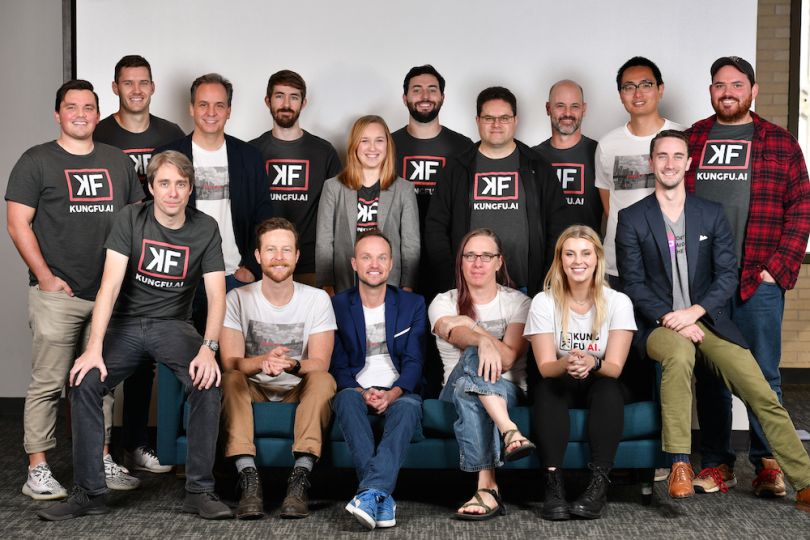
The tech power quad of Stephen Straus, Ron Green, ZZ Si and Steve Meier teamed up for their 2018 venture, KUNGFU.AI. The company partners with businesses looking to adopt AI practices through strategic consulting and the development of custom solutions. Since its founding, KUNGFU.AI has worked on projects with SXSW, Karbach Brewing and Alamo Drafthouse Cinema.

The gut is an essential part of the human body, playing an integral role in building a strong immune system and strengthening our heart, brain and digestive system. Last year, Vicente Reyes and Oliver Shuttlesworth launched e-commerce startup Mayawell to provide organic, agave-based prebiotic beverages that target the gut microbiome. Its drinks are available online and in-person at few locations throughout Austin and Los Angeles.

Big and tall men deserve high-end clothing subscription services, too. Mens Gold Boxx, which also sells individual items online, brings convenience and style to sizes often ignored by mainstream menswear providers. The company scored $100,000 from MassChallenge Texas last fall. The company, founded and led by CEO Cristina Rodgers, was one of five winning startups out of 74 in the program’s most recent accelerator class.

For small businesses in America, it can be tricky to land loans but not quite as difficult as it is for a small business in, say, Latin America. Mr. Presta, a graduate of Austin’s 2019 Techstars Impact Accelerator, is a fintech startup that supports small businesses in emerging markets with loan and credit services. CFO and COO Carlos Rosso founded the company, which is led by CEO Cesar Manduca.

Those looking to build their dream homes online have a new avenue for assistance. MyHouseby’s platform allows buyers to search for new residential communities, view house plans with real-time pricing and research builders. From there, users can begin designing and personalizing their future home through 3D virtual reality and augmented reality tools. The startup, which launched in 2018, is led by CEO and co-founder Gregg Alvarez.

Health clinicians managing the phones at their offices aren’t available 24/7, and even when they are at their desks, callers often sit on hold for minutes at a time. Omaiven Health’s AI platform, askMia, helps health clinics connect with patients, no matter the time. Using automation, askMia manages frequently asked questions, appointment reminders and scheduling over text messages. Ani Bagepalli and Jerold McDonald launched the healthtech startup in 2017, which was a member of DivInc’s fourth graduating class in 2018 and Techstars Social Impact Accelerator in 2019.

Serial tech entrepreneurs Arlo Gilbert and Scott Hertel’s latest venture, Osano, is largely responsible for those cookie consent windows that pop up when opening a company’s website. Osano’s partnerships lead to about 2.5 billion pop-ups every month. The platform helps businesses evaluate how compliant they are with privacy laws and lets them know when one of their vendors makes changes to their own privacy policies. It also scores companies based on their data privacy practices and notifies companies when they, or a vendor they use, break privacy policies. Since its 2018 launch, Osano has raised more than $8 million from investors, including $5.4 million in December.

The average family wastes about 180 gallons of water a week, or the equivalent to about 300 loads of laundry, according to the Environmental Protection Agency. Greentech startup Pani wants to reduce that by making it easier for everyone to monitor their water usage in real-time while offering custom tips for usage. Its equipment connects to shower heads, toilets and other water fixtures throughout the house, with monitoring kicking in immediately upon installation. The company launched in October 2018.
From computers to TVs, digital clocks to Bluetooth speakers, nearly every electronic appliance in your house has a printed circuit board (PCB). This small piece of hardware is what supports and connects electronic components using conductive pathways. Eric Schneider launched Patchr last year to help any innovator — not just electrical engineers — build and design their own PCBs using the Patchr platform in minutes. Once a design is submitted, the company manufactures it in-house and sends it out for delivery.

Forty-three percent of women in highly qualified positions leave the workforce when they have children, according to The Atlantic. And, if that gap is just three years, moms lose 37 percent compensation power, according to reporting from the Harvard Business Review. Prowess Project, a new women-led venture founded by CEO Ashley Connell, connects companies looking to hire fractional project managers based on skill set, personality compatibility and availability. Prowess’s talent network consists of educated, experienced women who are largely stay-at-home moms hoping to re-enter the workforce but who struggle to find opportunities that are both flexible and empowering.

Sometimes it’s best for businesses to host meetings offsite to get the team out of the office in a venue that inspires or wow a potential client with an impressive space. But outside of booking conference rooms at hotels, where do companies go to find these spots? Reset, co-founded by Siri Chakka and Silva Gentchev, partners with hip restaurants and creative spaces around Austin that would typically be closed during the day to host offsites for companies. Companies land awesome meeting spots they wouldn’t have been able to lock in without Reset’s help and venues get to make an extra buck toward rent.

After spending 12 years building FloSports into the mega sports entertainment subscription service that it is today, former CEO and Founder Martin Floreani moved onto his latest venture, Rokfin. The company offers a content subscription platform for creators and subscribers that’s ad-free and includes exclusive content like podcasts, articles and videos — and runs on blockchain. Unlike, say, YouTube, Rokfin’s content creators are compensated directly through a token system, without the intervention of a third party, for the audiences they bring in. So far, the network’s creators include comics, athletes, coaches and political thought leaders.
Siera.AI erupted onto the autonomous vehicle scene in 2017, but rather than focusing on road vehicles like the Ubers, Googles and Fords of the world, the company took a different direction: forklifts. And so far, the company says it’s proven successful. Through AI-capable attachments, Siera.AI turns existing forklifts into self-driving vehicles in less than two hours and claims a return on investment within six to 18 months of installation. Co-Founder Saurav Agarwal said he hopes to put Austin on the map for robotics innovation.

In a move to protect children against harmful internet content, Tankee launched the first gaming network curated for children audiences in 2018. The entertainment app features over 500 hours of gaming content played by top industry influencers as well as Tankee Original content. Gerald Youngblood, Candice Youngblood and Henry Lee co-founded the startup, which won at last year’s SXSW Interactive Festival Pitch event for the “Entertainment and Content” category.

Co-founded by President Marissa Limsiaco and Josh Feinberg, Tenavox offers a commercial real estate platform to help businesses find their next office, retail, or warehouse space by connecting prospective tenants and buyers with agents and properties that meet their needs in real time. While free for tenants and buyers to use, Tenavox charges agents and property owners to market their properties, but for a fraction of the cost of traditional marketing costs. Tenavox is currently available throughout Texas and has plans to scale nationally this year.

As the value of decentralized applications continues to rise, enterprise-level businesses will be forced to decide whether to adopt the technology early, or risk jumping aboard too late, causing sensitive data to be susceptible to attack. Transmute is stepping in to help businesses get ahead by creating distributed ledger technology that will integrate with a company’s existing cloud architecture and provide advanced identity security. Karyl Fowler and Orie Steele co-founded Transmute, which was a member of Oracle’s first North America cloud accelerator program in Austin.

New online marketplaces that connect contractor employees with opportunities in their fields have hit all sorts of industries, including health, energy and real estate. Gary Clarke, the former CEO of Hy9, applied this setup to construction logistics with Trelar’s platform. The solution offers virtual fleet management tools that help construction projects book, schedule and pay out material producers, dump truck drivers and project contractors. Trelar raised $2.1 million in November, 2018, and $3.1 million in October, 2019, for product development, partnerships, sales expansion and marketing initiatives.

Tribl makes it easier for African, Caribbean and Latin American migrants and other multicultural and immigrant communities to find one another and connect on its localized messaging app. Ikechi David Nwabuis, a former professional athlete turned startup founder and tech mentor, founded Tribl in 2017 and is currently participating in Techstars Seattle Accelerator.
About Built In Austin’s 50 Startups to Watch in 2020
Once each year, Built In Austin hand-selects startups that have the vision, team, focus and funding to drive innovation within the tech community. For our 50 Startups to Watch in 2020 list, we chose local companies founded within the past three years that we believe have positioned themselves for rapid growth and scaling in the year to come.



